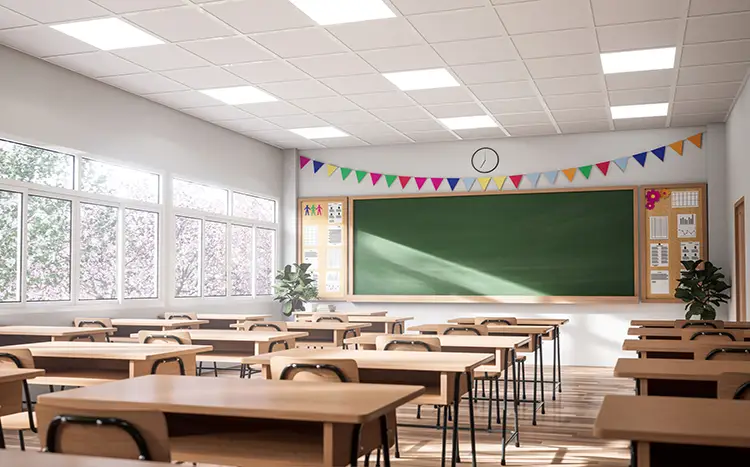How to Evaluate Schools When Buying a Home
Published on December 8, 2023 | 4 Minute read

Melanie
Ortiz Reyes
Content Specialist
Purchasing a home is a multifaceted decision, and among the many factors to consider, the quality of local schools is paramount. Whether you have school-aged children or not, the reputation of nearby educational institutions significantly impacts property values and overall community satisfaction.

Researching School Districts and Prioritize Your Needs
To begin, it's crucial to understand the broader context by researching the overall quality of the school district. Websites such as GreatSchools.org and Niche.com provide valuable insights, including school ratings, reviews, and demographic information. Look for districts that have consistently high ratings, positive parent reviews, and a track record of academic success.
Each family has unique needs and priorities when it comes to education. Some may prioritize advanced placement programs, while others focus on extracurricular activities or special education services. Create a list of your non-negotiables and use these criteria when assessing schools in potential neighborhoods. This ensures that the schools align with your family's specific requirements.

Visit Schools in Person and Evaluate Academic Performance
While online resources offer valuable information, there's no substitute for visiting schools in person. Schedule tours, attend open houses, and arrange meetings with teachers and administrators. Pay close attention to the overall atmosphere, cleanliness, and the attitude of the staff. This firsthand experience will provide invaluable insights into the school's culture, which is a crucial factor in your decision-making process.
Academic performance is a key indicator of a school's quality. Review standardized test scores, graduation rates, and college acceptance rates. A school with consistently high academic achievement is likely to provide a solid education. It's important to recognize that a well-rounded education involves not only high test scores but also a balance of extracurricular activities and character development.

Explore Extracurricular Opportunities and Consider Class Sizes
Extracurricular activities play an important role in a child's holistic development. Investigate the variety and quality of extracurricular programs offered by schools, including sports, arts, and clubs. A school with a diverse range of activities provides students with opportunities to explore their interests and passions outside the traditional classroom setting.
Smaller class sizes often contribute to a more personalized learning experience. Research the average class sizes in the schools you are considering. Schools with smaller classes tend to foster a more intimate learning environment, allowing teachers to better address individual student needs and provide more personalized attention.

Assess Teacher Quality and Check for Advanced Placement Programs
The quality of teachers is a crucial factor in the overall educational experience. Look into the qualifications and experience of the teachers at the schools you're considering. Check if the school invests in professional development for its educators, as ongoing training contributes to a higher standard of teaching.
For families with college-bound students, the availability of Advanced Placement (AP) programs is crucial. These courses offer students the opportunity to earn college credit while still in high school. Investigate the availability of AP classes, as well as the success rates of students in these programs. A robust AP program can indicate a commitment to academic excellence.

Review Special Education Services and Examine Safety Measures
If your child has special needs, it's essential to assess the quality of special education services provided by local schools. Look into the availability of special education programs, the qualifications of special education staff, and the level of support provided to students with diverse learning needs. A school that prioritizes inclusive education demonstrates a commitment to meeting the needs of all students.
Parents have concerns about the safety of their children while at school, understandably. Investigate the safety measures implemented by the schools, including security protocols, emergency preparedness, and anti-bullying initiatives. A safe and secure learning environment is a fundamental aspect of a quality school and contributes to a positive overall experience for students.
Selecting a home involves more than just the property itself; it encompasses the entire community, with schools being a crucial component. By thoroughly researching and evaluating schools in the area, you can make an informed decision that aligns with your family's values and priorities. Prioritize academic excellence, extracurricular opportunities, and the overall school environment to ensure a positive and enriching educational experience for your children. In doing so, you not only invest in your family's future but also contribute to the overall well-being of the community you choose to call home.